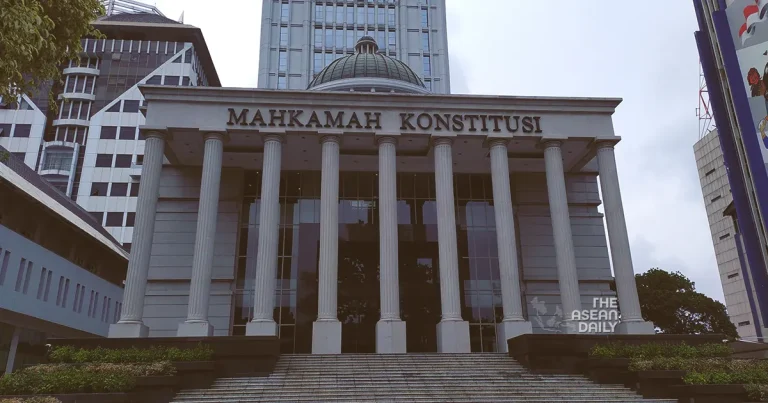2-10-2023 (JAKARTA) Indonesia’s top court, the Constitutional Court, announced its rejection of a petition to review the controversial “omnibus law” passed earlier this year. The law is aimed at streamlining bureaucracy and attracting investment to Southeast Asia’s largest economy. It is a key part of President Joko Widodo’s economic reform agenda as he prepares to leave office next year.
Labour and environmental groups have criticized the “omnibus law,” asserting that it disproportionately favors businesses at the expense of workers and consumers. They argued that the law was formulated in an unconstitutional manner.
In a hearing streamed online, the judges rejected the petition, stating that the government’s formulation of the law was in accordance with the constitution. Outside the court in central Jakarta, workers staged a protest, holding banners and setting a tire on fire.
The original Job Creation Law, which the “omnibus law” amended, triggered massive protests across Indonesia in 2020. It aimed to relax regulations on mandatory severance pay, paid leave, and outsourcing in specific sectors.
In 2021, the Constitutional Court ruled the passage of the original law was flawed due to insufficient public consultation and ordered lawmakers to restart the process within two years, or the law would be considered unconstitutional.
In December, President Joko Widodo issued an emergency decree to expedite parliamentary approval of the “omnibus law,” a move criticized by legal experts for bypassing proper parliamentary debate.
Civil society has also raised concerns about the independence of the Constitutional Court, especially after President Widodo’s brother-in-law was reappointed as chief justice in March.




